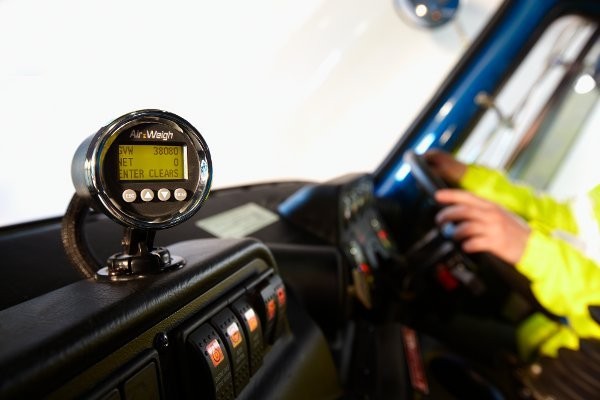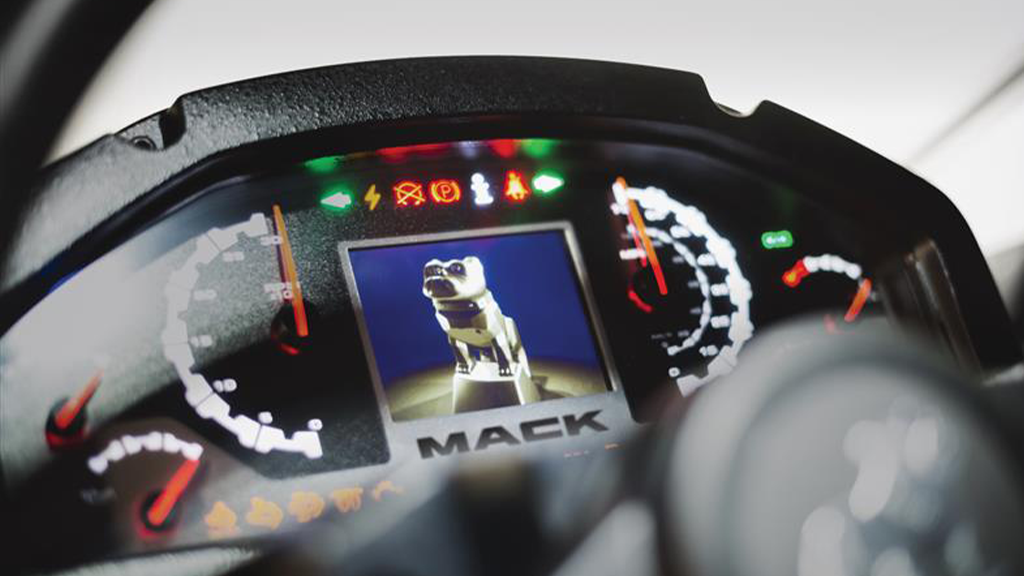Weighing the benefits
Onboard scales make the difference for recycling fleets

When state transportation enforcement authorities started handing out overweight fines to haulers from the city-owned fleet of recycling trucks in Durham, North Carolina, several years ago, it didn’t take long for managers to change their ways.
“The tickets were adding up,” said Clayton T. Hearne, manager of the city’s fleet of more than 1,500 vehicles. “We’d end up with a bunch of $2,000 tickets, which can make a pretty big hole in your budget.”
Hearne says since adding Air-Weigh scales, the department has seen a dramatic decrease in tickets, and that vehicles that are not outfitted with the scales are more likely to be overweight.
“It gives you peace of mind,” he explains. “It gives the driver every opportunity to know if he’s going to be over on axle weight or over on overall weight.”
Durham’s recycling division serves between 70,000 and 80,000 customers in a city of 120,000. Air-Weigh onboard scales are installed on the city’s drop-frame automated trucks, which cover residential recycling routes. Specifically, Durham use Air-Weigh’s LoadMaxx straight truck refuse kits to stay legal and safe and also to make sure they are being efficient with their route development. Trucks in the Durham fleet are outfitted with a three-part system that includes a digital display, an electronic control unit and sensors. The scales also include an alarm feature that can be used to shut off the hydraulics to prevent overloading.
Streamlining operations
In addition to saving money on tickets, Air-Weigh scales have helped streamline Durham`s operations, giving drivers the ability to maximize their loads and providing fleet operators the kind of data they need to run a more efficient operation. Hearne says their scales are very simple to use and provide operators with accurate front axle, rear axle or combination weights.
The Durham fleet chose Air-Weigh based on recommendations from other cities. Managers were also drawn to the simplicity of the digital display and the product’s ease of operation. According to Hearne, the system was quick and easy to install and is simple to calibrate.
Before the scales were installed, he explains, the fleet operated with a “hope for the best” kind of approach. For example, a driver would estimate a route at 150 pick-ups, but those pick-ups could actually weigh more than anticipated if there were more single-family homes along the way or other weight-contributing factors. When the scales were installed, drivers suddenly had a more accurate reference tool to plan their routes.
Before using scales, the fleet regularly dealt with tipping fees on loads, often on days following a rainstorm when loads weighed more and transportation enforcement officials were likely to be out in search of violations. Once the word got out that the Durham fleet was outfitted with scales, Hearne says, transportation officials stopped pulling over drivers.
“For the most part, (they) knew that if they’d see our trucks rolling that we’d have Air-Weigh and that the drivers were using it the way they’re supposed to,” he explained. “Once they see that we’re ahead of the game, they go stop somebody else who hasn’t incorporated some of these kinds of technologies.”
It’s about more than just winning the cat and mouse game with transportation officials though. From a liability standpoint, scales protect both the city and the drivers.
“It’s given the drivers the capability to see how much that load actually weighs,” Hearne says. “From a business standpoint, it covers us. You have to have that accountability factor covered.”
Hearne says the drivers never really knew how much weight they were carrying before the scales were installed. Durham has one of its sister cities to thank for kicking its recycling fleet into gear and installing onboard scales. The neighbouring city spread the word to other municipalities after investing in onboard weighing equipment and solving its own ticket problem virtually overnight. In addition to being effective at reducing fines, Air-Weigh scales require little service, Hearne says.
Durham is hoping to install Air-Weigh systems on more trucks in its fleet. As the city retires old trucks and buys replacement vehicles, it purchases trucks with Air-Weigh systems installed. As Hearne sees it, putting scales on his vehicles is not much different than putting a backup sensor or any other useful safety feature on a truck. The department stresses the importance of awareness and accountability on the part of drivers and, to that end, onboard scales help assure that operators are always informed about what they are doing.
To fleets that haven’t invested in onboard weighing equipment, Hearne’s message is simple: “Why have you waited so long?”
“It’s cheap insurance,” he adds. “We buy insurance to protect from accidents. What’s the difference. You can pay less now, or more later.”



